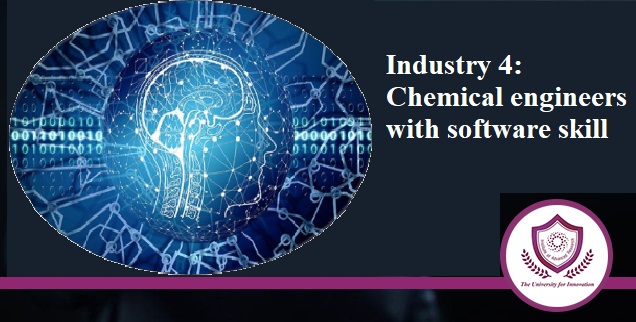Industry 4 is nothing but the computerization of traditional manufacturing processes using modern smart technologies. The world is looking for the intensification of the large scale process to a small scale with more economical and safer processes with the application of smart technologies. Chemical engineering projects are multidisciplinary and it powers people to communicate and makes work easier. In manufacturing industries particularly for chemical and petrochemical industries, chemical engineers have a key role. Chemical engineers deal with scale-up of laboratory process for mass production, intensification of an existing process, solve technical problems, manage projects, equipment design, processing and management of raw material to desire products, etc.
Chemical engineering evaluation
The growing use of cloud and other computer technologies may cause engineering jobs to require skill sets other than traditional engineering. There are an endless number of opportunities for chemical engineers with software skills if we just apply them correctly. Since 2002, many Chemical Engineers with IT/Computer skills are employed as software engineers, systems engineers, data warehouse developers, and IT Consultant. It can be either at the industrial scale or in research labs and it can include everything from process modelling, analysis, identification, planning, setup, control, maintenance etc.
Scope while graduating
While graduating, chemical engineering students have an opportunity to select elective courses like C++, Python, MATLAB, Mathematica, DWSIM, Aspen Plus, COMSOL Multiphysics, etc. These courses have an application in enterprise programming projects, technical and scientific computing, programming coupled with numerical analysis, and Modelling & simulation.
What is process simulation?
In process simulation, process parameters are mathematically modelled and further simulated using a virtual digital platform, where practitioners from chemistry, physics, computer science, mathematics, and engineering work together. Like mobile or computer games, a large scale process can be simulated in real-time. The process simulation becomes the most important and strong tool in chemical processing, business admiration, research, optimization, economic analysis, debottlenecking and knowledge training.
Where are the opportunities?
Non-traditional career path: Analytics and data science skills are found to be important in the evolving chemical industry. Due to progress in virtual platforms and Industry 4, chemical engineers have an opportunity to develop virtual simulation, industrial internet of things, big data, data analytics productive analytics, Cognitive computing and cloud computing. Traditional career path: Process Engineer, Scientist, Production Engineer, design engineer, commissioning engineer, Wastewater Engineer, QA/QC engineer etc.
Dr. Ganesh S. Bajad,
Institute of Advanced Research,
The University for Innovation, Gandhinagar



















